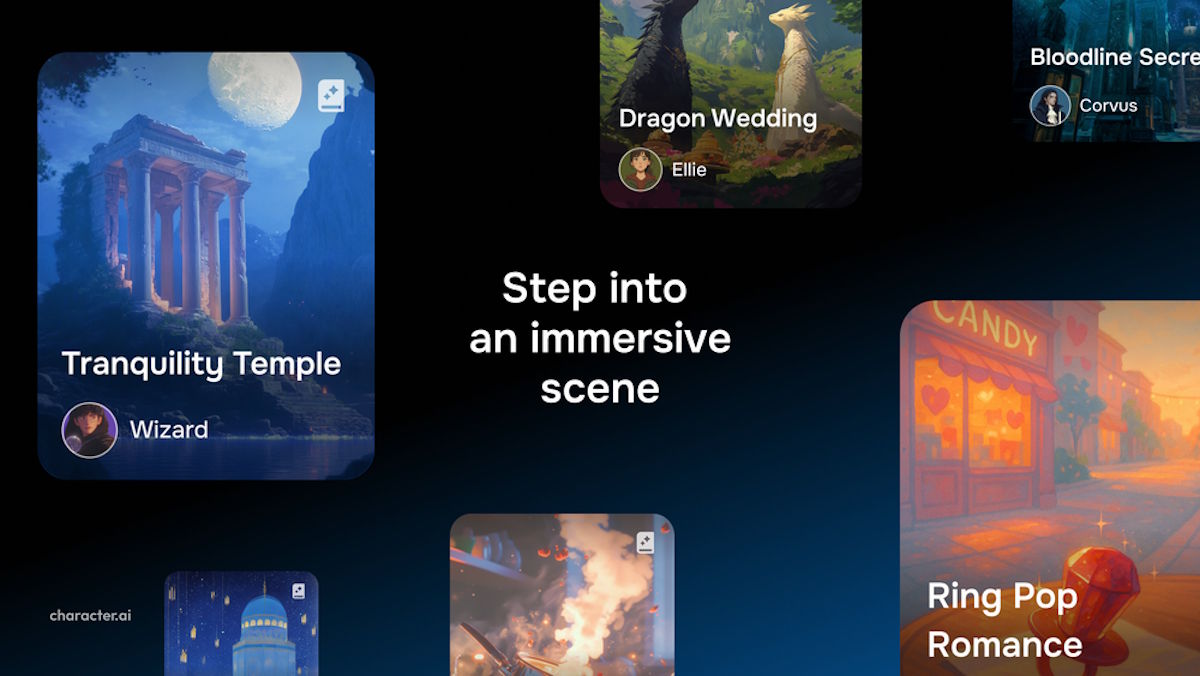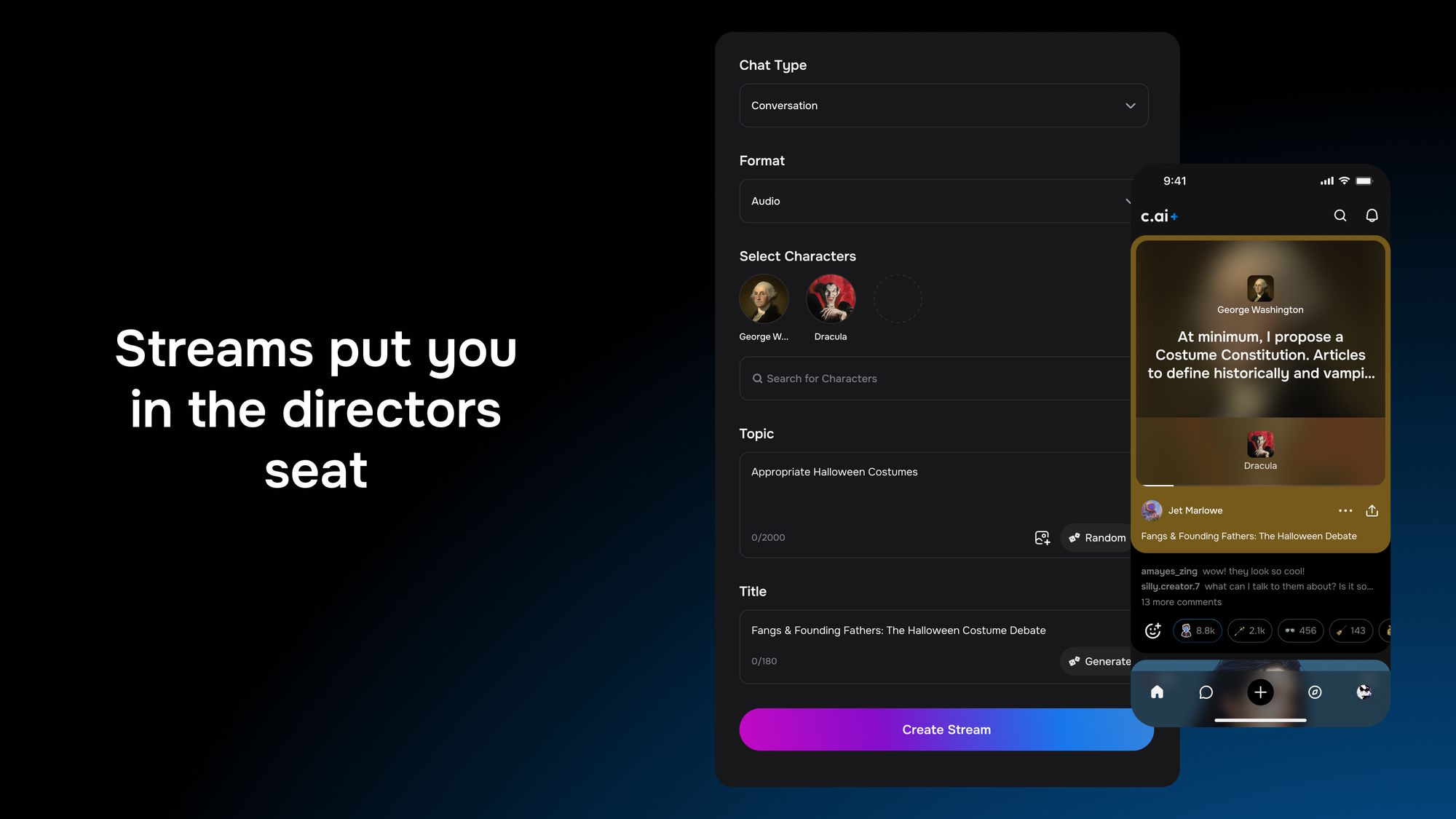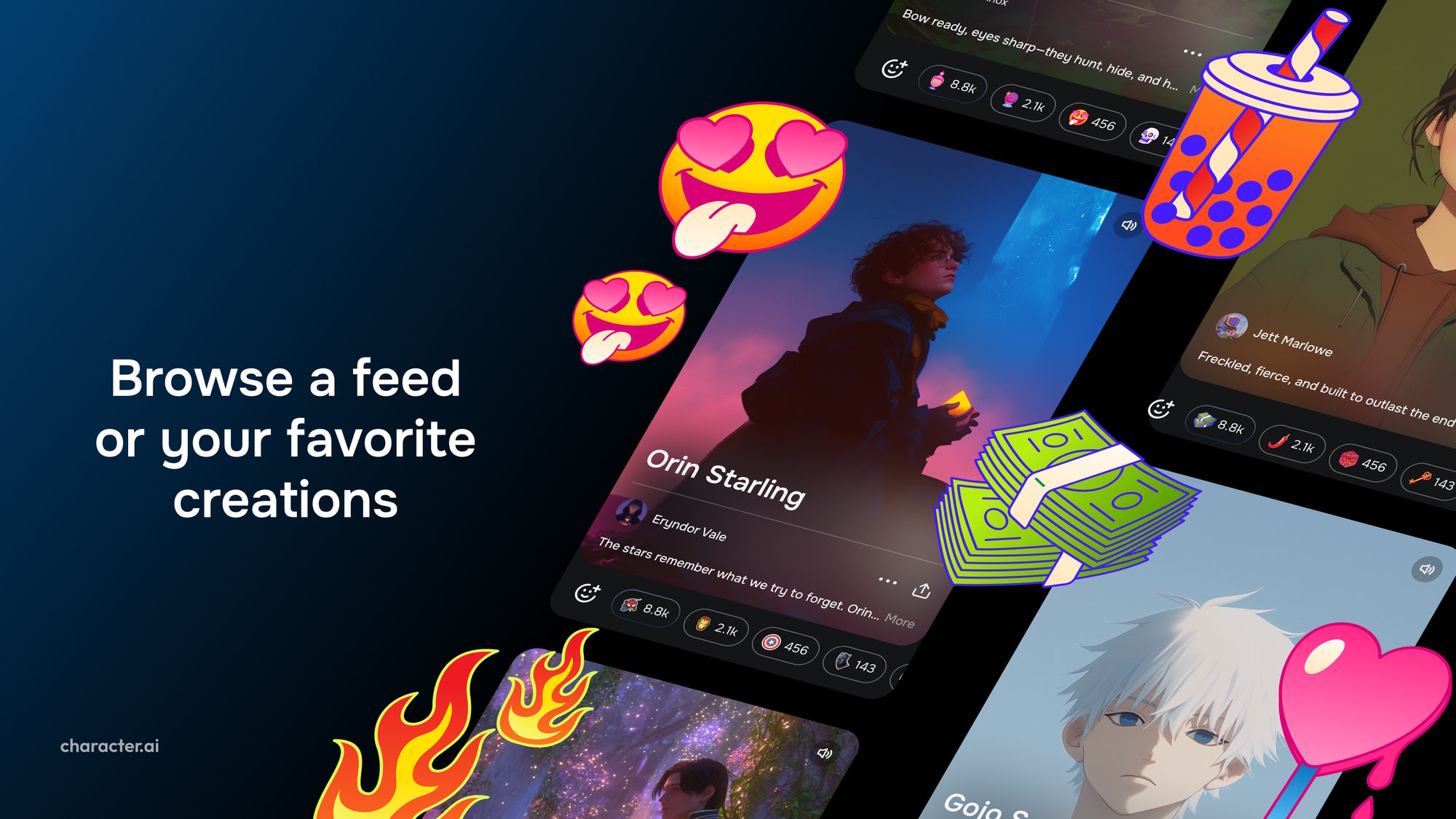Character.AI moves toward social networking with animated AI avatars

Character.AI is moving beyond text-based chat, adding new ways for users to interact with AI-generated characters.
The platform's latest update centers around AvatarFX, a tool that lets users create short, animated video clips where their AI avatars can talk or sing. Users start with a single image and pick a voice. They can either type in dialogue or upload a soundtrack, and the tool generates a video of the character speaking or performing. For now, AvatarFX is only available on the web, but a mobile version is on the way.
Video: Character.ai
Character.AI is also rolling out interactive "scenes"—prebuilt narratives where users can drop in their characters. In the future, users will be able to create and publish their own scenes with custom tools.
Another addition is the "streams" feature, which automatically generates conversations between any two AI characters on a chosen topic.

With the "Imagine Animated Chats" function, users can turn especially entertaining or interesting conversations into animated video clips. These clips can be shared on the platform or on external channels. For now, this feature is only available to paying c.ai+ subscribers on mobile devices.
Animated chats, streams, scenes, and characters will soon be shareable via a new community feed in the smartphone app. Character.AI has also redesigned its profile pages as it moves further into social networking for AI-generated content.

Character.AI's approach differs notably from Meta's 2023 strategy. While Meta dropped AI versions of celebrities like Kendall Jenner directly into Instagram's feed, Character.AI maintains a separate space dedicated to AI characters. By creating this distinct environment for AI interactions rather than mixing them into existing social networks like Meta did, Character.AI might find users more receptive to engaging with AI avatars.
New features, known risks
These new features also raise familiar concerns about misuse. Character.AI has faced criticism before, including a case where a 14-year-old boy died by suicide, allegedly after developing an obsessive relationship with a Character.AI chatbot. The company is facing several lawsuits.
Adding video and animation might increase the risk of abuse, first and foremost because it makes AI characters even more immersive and lifelike. Character.AI says it blocks uploads of real people's photos and alters images to make them less recognizable. But celebrity illustrations can still slip through, and video watermarks can be bypassed, TechCrunch reports.
In fall 2024, Google secured licensing rights to Character.AI's language model technology. As part of the deal, co-founders Noam Shazeer and Daniel De Freitas, along with some of the research team, moved to Google, though Character.AI itself remains independent.
AI News Without the Hype – Curated by Humans
As a THE DECODER subscriber, you get ad-free reading, our weekly AI newsletter, the exclusive "AI Radar" Frontier Report 6× per year, access to comments, and our complete archive.
Subscribe nowAI news without the hype
Curated by humans.
- Over 20 percent launch discount.
- Read without distractions – no Google ads.
- Access to comments and community discussions.
- Weekly AI newsletter.
- 6 times a year: “AI Radar” – deep dives on key AI topics.
- Up to 25 % off on KI Pro online events.
- Access to our full ten-year archive.
- Get the latest AI news from The Decoder.